How Travis Snider found humility in his long trip through baseball
Travis Snider broke into the major leagues at age 20 and for a brief time, he felt invincible. He had reached the top of the baseball world and was expected to be a cornerstone for the Toronto Blue Jays.
But he struggled to remain at that summit. Then he started getting shuffled between organizations. He was humbled by setback after setback.
He played for eight organizations - nine if you include the independent Long Island Ducks - across 15 seasons. He played for scores of different managers and coaches and had hundreds of teammates. He calculates that he spent two full years of his time in professional baseball inside hotel rooms.
Those travels included the benefits of visiting some of the finest steakhouses in North America. Something of a foodie, his social media profiles brand him as the "Lunchbox Hero," and he advocated for other carnivores with the catchphrase, "Meats don't clash."
Snider officially announced his retirement in January on the cusp of his 34th birthday, and theScore asked the Seattle-area native to reflect on what he learned during his long and winding road through professional baseball. The interview has been edited for length.
theScore: Getting to the majors at 20 is not something many players accomplish. How did that shape your early career? Were you ready?
Snider: Getting to the big leagues at 20, and having a solid September and a solid next April, I'm rolling into May (2009) thinking, "Yep, 10-year, $100-million (contract). Hall of Famer. Let's go!" I wanted to become the best player in the league. I always wanted to be an All-Star. I always wanted to be a Hall of Famer. Those are things we all want as athletes. ...
But the early success combined with the distractions, the investment and time and energy into these storylines, and my ego, started to shake the foundation that I had built my career upon. After dealing with the personal tragedies in my life, baseball was always the thing that was consistent. (In a two-year period as a teenager, Snider's mother died, and he lost several others close to him.) And then as baseball became a thing (that was) no longer was consistent, in terms of performance and my mindset, my mental health, the experience of going up and down. It was difficult.
People ask, "Were you prepared to play in the big leagues at 20 years old?" I say, "Absolutely, but I wasn't prepared to get sent down." That failure, and the way that I handled that failure, scared me for the rest of my career.
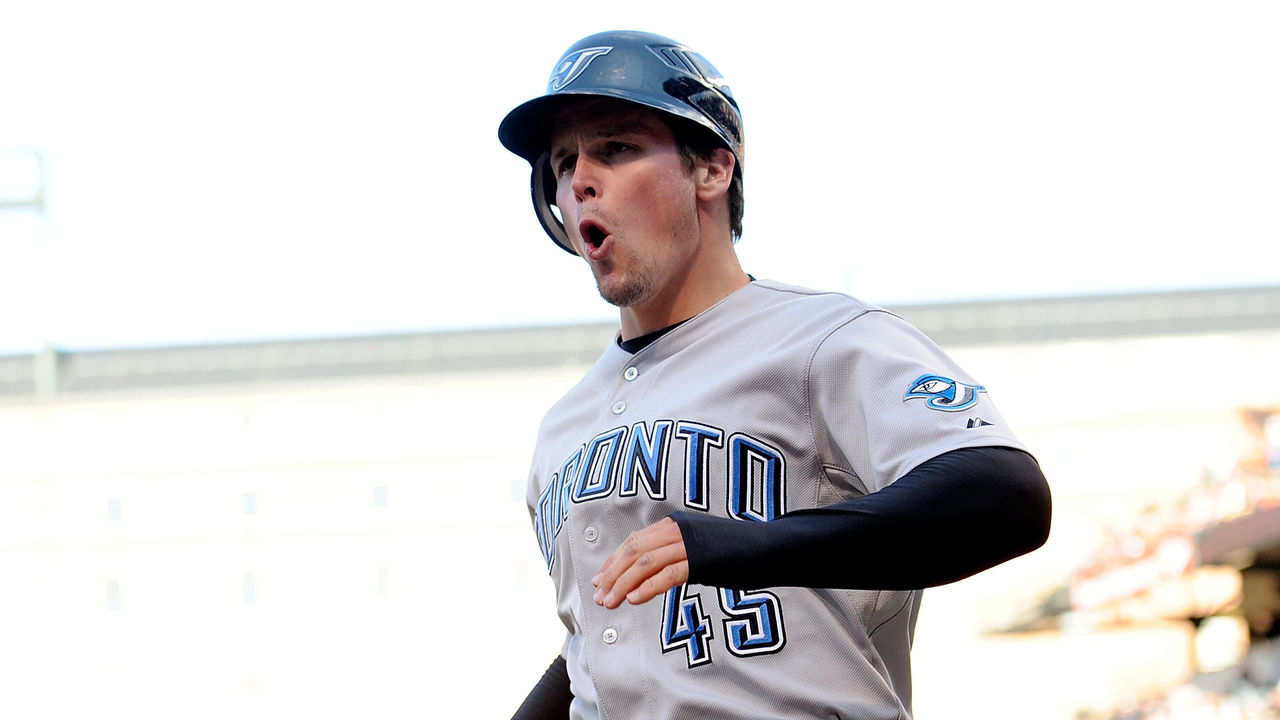
What were some of those distractions that you feel you failed to handle well?
Snider: It was an interesting time with the printed word becoming a digital word. Now all of the sudden, you have all of these blogs, social media is starting up. It was a difficult time for me as a young player who did a good job in high school and early in my career of staying focused on the process. I started getting distracted. I started buying into more of the Baseball America articles. When you're a 20-year-old kid, you live and die with those rankings. When you're 33? Why the f--- did I care?
(Snider was ranked as Baseball America's No. 6 prospect in 2009, sandwiched between Jason Heyward and Brett Anderson).
Early in my career (in Toronto), I'd have 10-to-15 reporters after every game around my locker. I just started reading the articles, started reading the storylines, and started perpetuating these things within my headspace. I started to build up these expectations that really have no value when it comes to me going and handling my business and focusing on my process. I started to pay attention to things, and place value in things, that I should have never wasted time and energy on. ... After a good game, you get 100 text messages from everybody, "Oh, nice game," et cetera. All those things, they feed the ego. ... I did not do a good enough job throughout my career of handling those things.
You said you weren't prepared to get sent down that first time in Toronto, how did you handle that?
Snider: Cito (Gaston, Toronto's manager in 2009) and I had had a weird relationship starting right around late April. I had been swinging it pretty well and started falling into a funk. My timing was late at the plate, and he made a comment to me during the game which I didn't receive very well. I didn't say anything (in the dugout). I went into his office later, and as a 21-year-old, I said, "Hey, Cito, I don't want to be disrespectful or uncoachable, but could you just not talk to me during the game about my timing and my swing. If you want, come to the cage and have a conversation." I remember that it placed a wedge between him and I. I can't imagine what was going through his head.
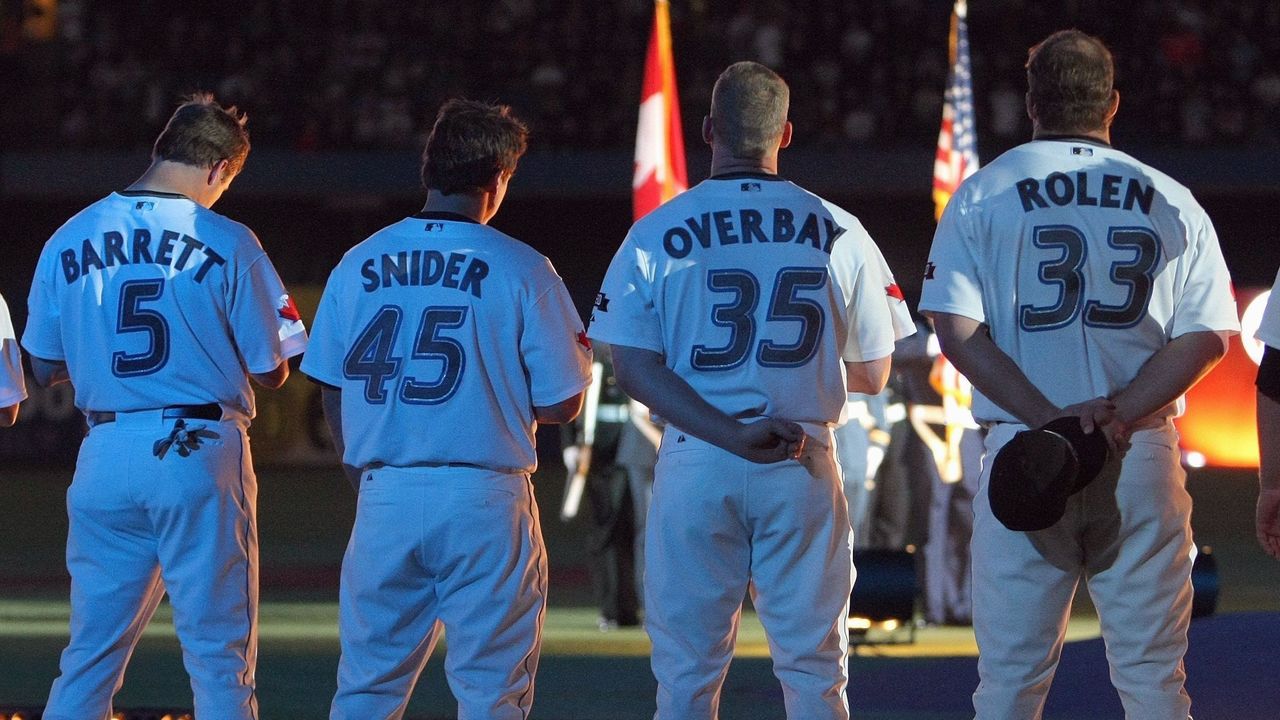
I'm 33 now. I'm thinking about myself as a 21-year-old, going into the manager's office, let alone Cito Gaston, and his storied career, and telling him these kinds of things. I think my intentions were right but the delivery and process was wrong. I started kind of building a wall between Cito and me after that.
When I got called into (Gaston's) office two or three weeks later in Boston and they said, "Hey, we are going to send you to (Triple-A) Vegas," I looked at them, guffawed, and said, "You gotta be kidding me." I was one of the best players on the team for the first month (106 wRC+ in April but just 21 in May). I went 4-for-50 or whatever leading up to that decision for them to send me down.
Removed from the situation, they were telling me I should just go back down to Triple-A, clear my head, dial in my swing, come back, and help us win. But I took it as, "You're not good enough to play for this team, and we don't really know if you're the franchise player that everyone has been spewing out there." That storyline I was buying into. I'd never been told I'm not good enough. ... I never had those failures as an amateur. I never had those failures as a minor leaguer.
Was that first trip back to the minors one of your most difficult experiences?
Snider: The first week there, I collided with a pitcher - I think I missed four-to-six weeks. I got an epidural in my lower back. I was jacked up for a while. So then I'm sitting in Florida on minor-league rehab after being in the big leagues for the first two months. Reality check. Boom. You're not making the same money. You're not staying in a hotel for free. And you have to rehab an injury that's basically having to walk and swing from ground zero. It was a difficult period for me.
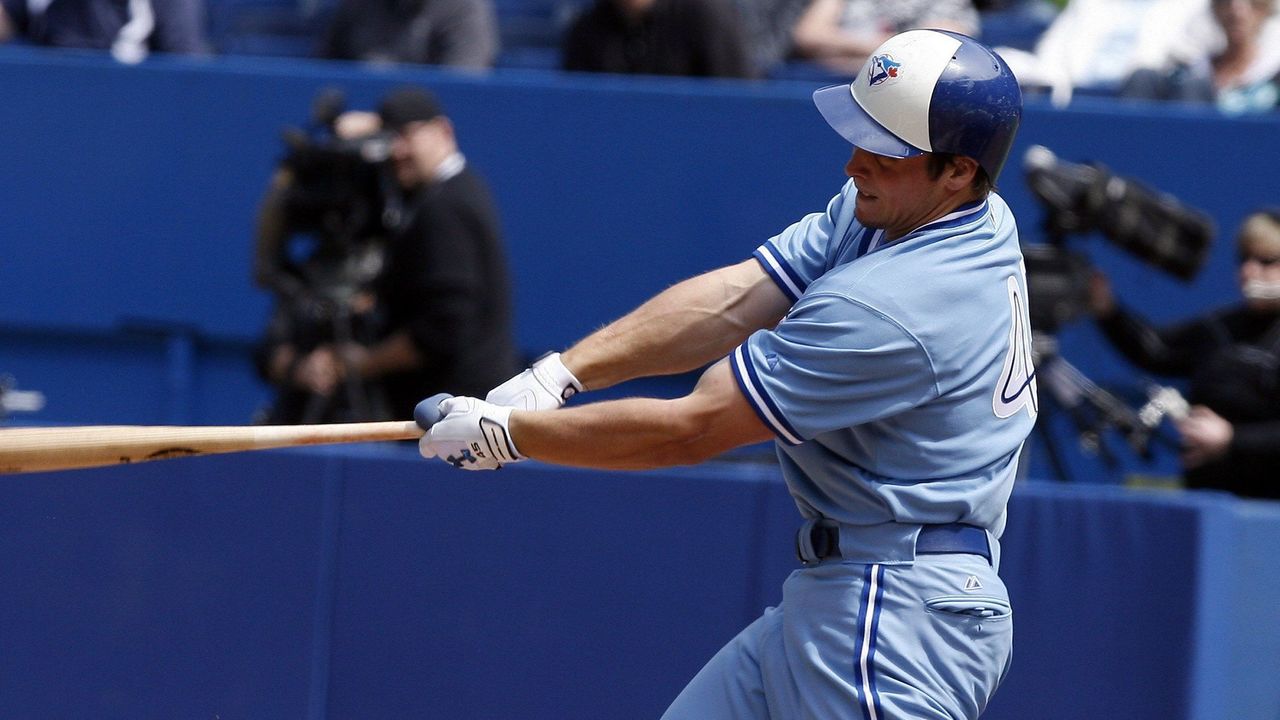
But I think one of the darker times would have been 2011. I got sent down (in late April), I was dealing with an injury from that spring, trying to come back ... (In Las Vegas), I slept on the couch where Kyle Drabek, Brett Lawrie, Adam Loewen, and Scott Richmond were staying. Basically, all their wives were with them, too. Instead of getting my own place, which I could afford, I was like, "Guys, do you mind if I sleep on the couch?" I had to be around people. Not that I was thinking about hurting myself, but just the amount of pressure, the amount of difficulty with that experience like, "Oh my God, here we go again, Triple-A." ...
I will always have a special relationship with those guys. All kinds of personalities that lived in that house, it made it fun for us. We pushed each other through some of these difficult times.
I remember I got called up (July 3). ... Then (on Aug. 4, Blue Jays manager) John Farrell calls me and they're sending me back down. They call up Brett Lawrie for the very first time. Brett became one of my best buddies. I felt like I didn't get that chance after all the work I put in since being sent down. ... The roller coaster of those experiences. Every time I thought I was there, a lot of times, it was taken away. Mentally and physically, I was not prepared.
What did you learn from all these experiences, from reaching the top of the sport and then hitting these roadblocks?
Snider: My sole focus should have been on, "What do I need to do to get better? What do I need to prepare myself for that game." ... Those (demotions) are things I took personally. Those are things I felt like were failures on the biggest stage.
(With the first demotion,) Cito and the Blue Jays were trying to help me, 100%. But I felt like I no longer had the trust of the coaching staff. It was more of my ego wanting to protect myself from doing something that was uncomfortable. But in doing that, I hurt myself and closed a lot of doors and created a lot of tension and drama within our relationship that never needed to be there. ... Because all of this other drama, all of this other baggage that I carried with me for most of my career, only hindered me. I feel like it's going to be a fantastic learning experience to look back on.
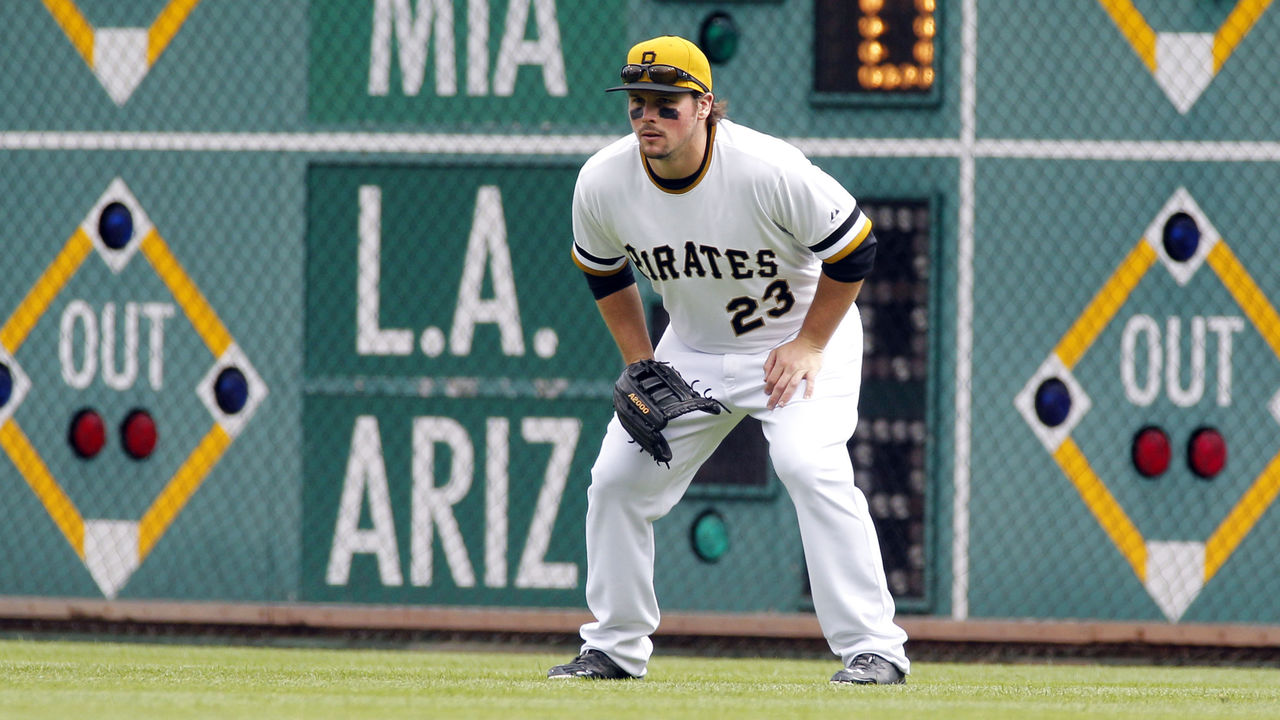
You've been sent back and forth several times and had that experience of falling from top-prospect status to owning an uncertain future. And in 2012 you get a new experience: You get traded.
Snider: Going into 2012, it was like, "No excuses." I don't care if they send me to Triple-A. ... They sent me to Triple-A. I said, "I don't give a shit." I think my attitude and mindset was locked in. I think I hit .400 for the first month there. ... In July, I'm back in the show. J.P. Arencibia, Brett Lawrie, these guys I was grinding within the minors, we're all in the big leagues. And sure enough, two weeks later, I get traded. I was like, "F--- man," I finally felt like I'm here, my boys are here, it's not a veteran team, it's a young team. We are all in this together. That was really emotional for me because I was close with all those guys.
What was the Pittsburgh experience like?
Snider: It was completely different. ... The team camaraderie was great. We made the playoffs. I had one of my best years in 2014 after dealing with some injuries, and a pretty major foot surgery (in December 2013) ... I played every day down the stretch versus lefties or righties. I started against Madison Bumgarner in the (2014) wild-card game, even though he punched my ticket twice.
After the season, Snider was traded to Baltimore, released during that next season by the Orioles, and picked up again by the Pirates. In the 2015 NL wild-card game, he singled as a pinch-hitter against Jake Arrieta, but the Cubs eliminated the Pirates. At the age of 27, it was the last of his 1,975 major-league plate appearances. Snider spent another six years trying to reach the majors again. He finished with 5 years and 86 days of service time accrued over parts of eight MLB seasons.
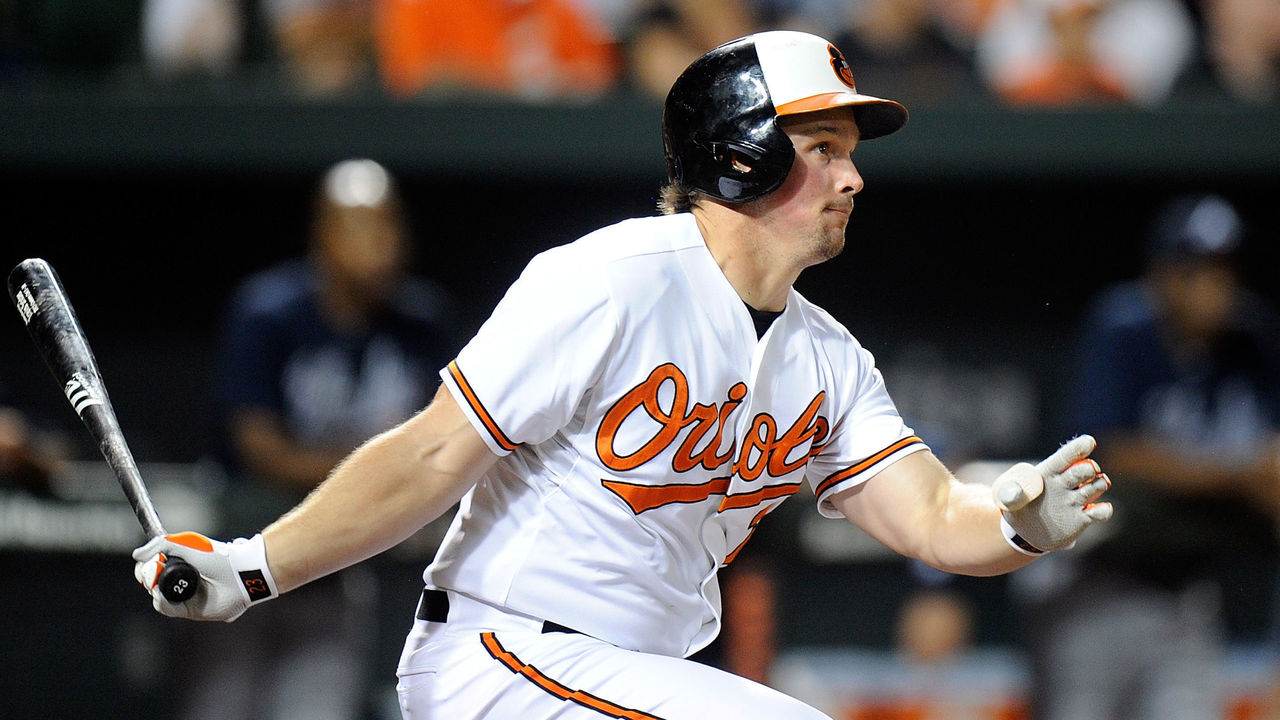
Why did you keep playing?
Snider: There was unfinished business. There was a realistic outlook, "Hey, I'm not getting a chance to go to the big leagues and play every day unless I earn it." But I was willing to take that shot. In 2016, when I went to Omaha (on a minor-league deal with the Royals), it was another rock bottom for me. After being the guy, after being an Opening Day starter, after not having to go on road trips ... in spring training, the little nuances of being an everyday starter, now reality starts to set back in. Your ego starts being challenged. "Why am I playing the second half of a spring training game on the road?"
You go from flying private, staying in Ritz-Carltons, you get accustomed to this lifestyle, and all of the sudden you are back in the bushes and riding on bus trips overnight. You fly in the morning of a game with two connecting flights. You have to bring it. I can't tell you how many times I've heard in my career, guys that come down to Triple-A and say, "I just can't get up for this." Well, you're not going to be here very long. Your ass is going to be out of the game in the next two years. ... In '16, I just didn't have a good attitude. I wasn't mentally prepared for the adjustments. I was going to have to make peace with how the organization viewed me.
That's something I really highlighted in 2017 and focused on (in Triple-A with the Rangers and Mets organizations). I set a goal with Will Middlebrooks. Will and I were sitting there in spring training, he started complaining about something, I started complaining about something. I looked at him and said, "We are going to fine each other $5 every time we complain about something the rest of the year." Because as a major leaguer, going back to the minor leagues, you can find 100 things a day to complain about. A lot of that is your ego. ... As I look back on all these experiences, I realize the game was humbling me and humbling me for life after baseball.
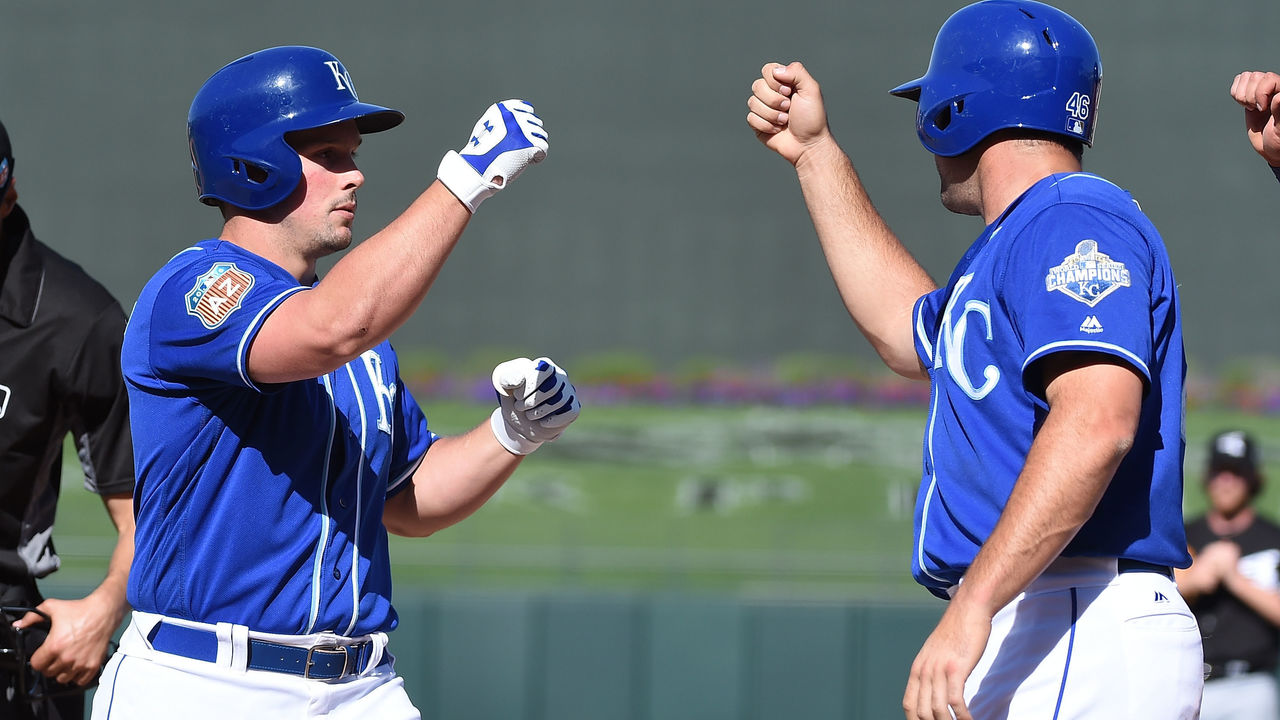
Coming off the 2017 season, when you hit .297 in Triple-A and posted an .807 OPS, you ended up unsigned like many players that spring. There were so many free agents that there was a "jobless" players camp in Bradenton, Florida, that you attended. What was it like to be there?
Snider: Going into that offseason, I felt I was close. I could taste it. The fire is burning hot. And then I don't get a job. Not even a minor-league deal, not even an invite to spring training. ... I was having preliminary conversations about a radio job, but I ended up going to the camp. That was one of the craziest experiences of my life. ... I thought about what I was going to do after baseball. It had started to plant those seeds for me. It kind of motivated me to get involved in things outside of baseball.
That time spent (at the camp) for Neil (Walker, a former Pirates teammate) and myself was difficult. Neil ended up signing that year. A few guys I was close with ended up signing. I didn't. I ended up playing indy ball for the Long Island Ducks. That was rock bottom in terms of baseball career standpoint. As stupid as it sounds to say, I never thought I would bring myself to play independent baseball. Why do that? Why not just retire? Why not just go home? I had a 2-year-old at home." (Snider and his wife have three children).
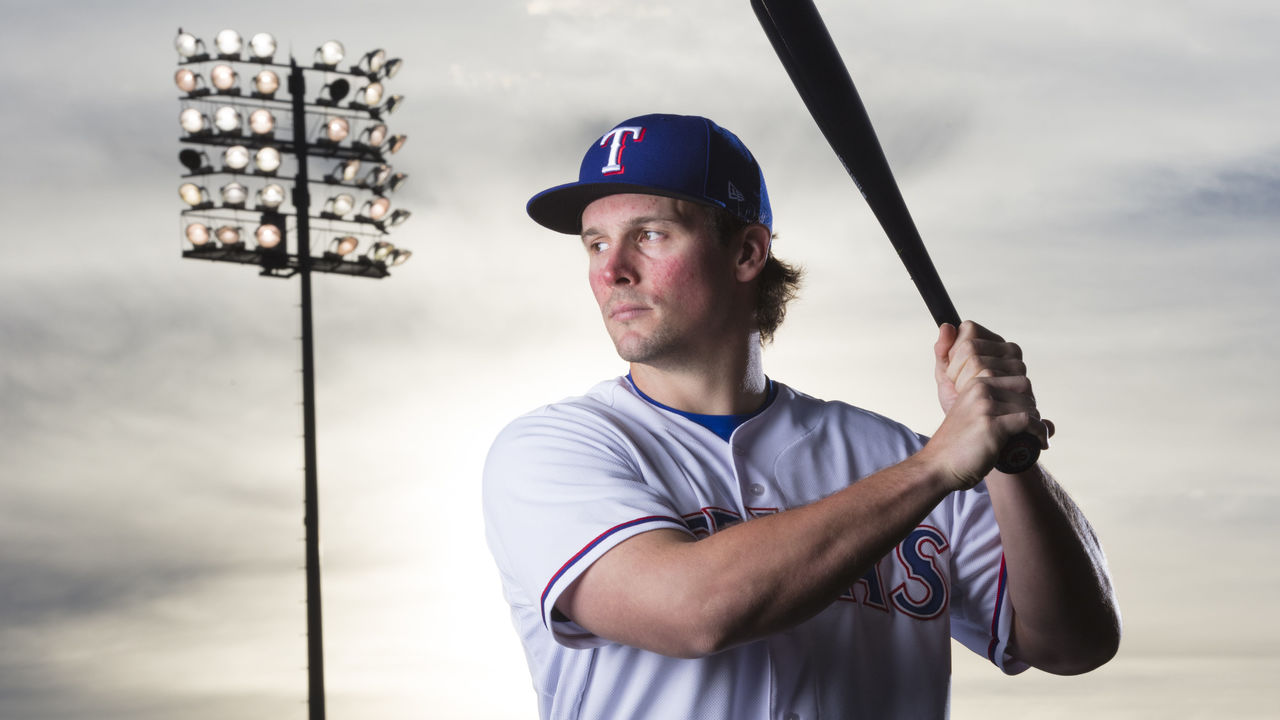
Why did you?
Snider: The improvements I made from 2016 to 2017, I wanted to build upon going into '18. So I went and played indy ball. That was one of the great life experiences I will ever have. I realized the love of the game, the passion, the purity of indy baseball. ... It was a humbling experience, too. Every time I rolled over to second base, it was difficult not to think, "Why am I not retiring." But I rallied, man. I got hot. Going into '19 was a lot like '17. No excuses. I don't care if you're 0-for-20 in the spring. I don't want you feeling sorry for yourself for one second. There's not one person in the world who feels sorry for you.
Snider spent 2019 in the minors with the Diamondbacks organization. COVID-19 wiped out the 2020 minor-league season. Braves general manager Alex Anthopoulos, who was the GM in Toronto during Snider's tenure, signed Snider to another minors deal in 2021. Snider hit .174 in 137 at-bats. Those were his final professional at-bats.
When did you know it was time to retire?
Snider: As this offseason progressed, as I decompressed, the priorities had shifted. Getting back to the big leagues and accomplishing that goal was not the most important thing. It was not the only thing that mattered. We've always been selfish as athletes, pro athletes especially. For me, I just didn't like that person anymore, that person that always put baseball and himself first and compromised relationships. It started to become clear to me that I was done. ... October or November is usually when that fire gets lit. I'm an offseason champion. I always felt I was one of the hardest workers and most disciplined guys. This offseason, I didn't have that. I'm not going to try and do this with three kids and one foot in and one foot out.

Do you feel like there was an opportunity cost in hanging on too long?
Snider: I don't look back on my career and say, "Man, I wish I would have gone to school four years earlier, found a job, and now I'd be making six figures." I'm a high school kid without a college degree. But I'm also an entrepreneur. I'm also an investor. (Snider has investments in real estate in the Seattle area and in cryptocurrencies.) I'm also someone who has educated myself with the help of people who are a lot smarter than me, pointing me in the right direction.
I take a lot away from those life lessons learned in my 20s into my 30s.
Travis Sawchik is theScore's senior baseball writer.